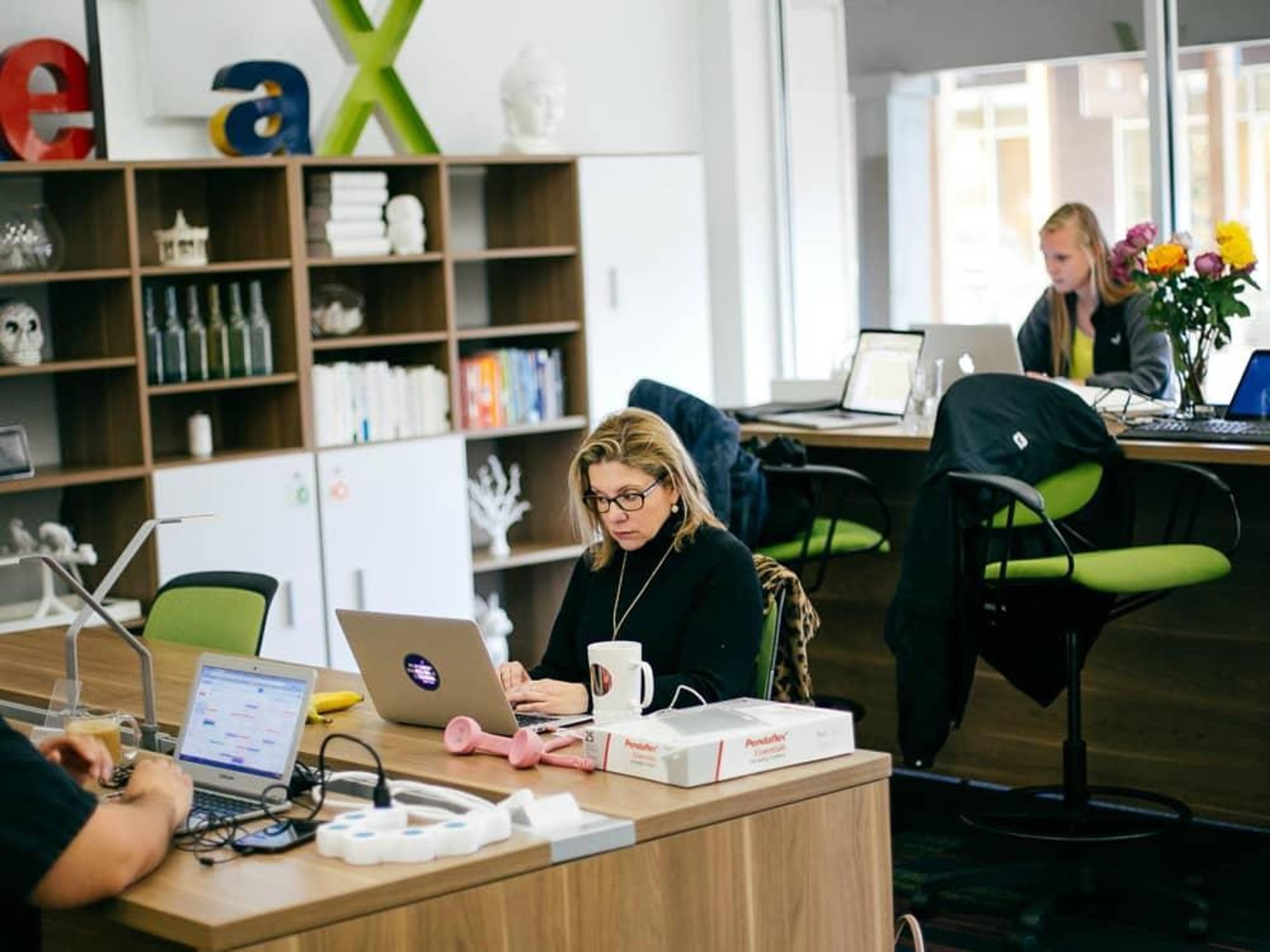Secrets to Success
Expert discloses 5 habits to avoid at work — and how to combat them

Productivity. We all crave it, but few have actually mastered it. You know those days you have at work: the productive days and the, well, not-so-productive days. In the day and age of constant distraction and limited attention spans, the old mantra of “work hard” has been replaced with a new one of “work smart” in order to maximize your productivity.
Maura Nevel Thomas, a productivity guru of sorts, has dedicated much of her career to helping folks control their attention and manage their time. As an author, speaker, trainer, and consultant, Thomas works with businesses and individuals in areas of effectiveness, attention, and productivity.
To help you have a productive workday every day, we looked to Thomas for the five pitfalls to avoid at work that derail productivity and how to combat those habits.
1. Checking your email constantly
Checking your email constantly completely "zaps your productivity." Your attention is divided with the interruption of email notifications and notes coming through the interwebs that may feel like you need to respond to them right now, but in actuality they can wait.
When it comes to email, don't default to that when you don't know what else to work on. It’s easy to feel like you’re being productive by responding to, deleting, or filing away those emails, but really, email can take you away from more important tasks — and even worse, derail “the flow.” Thomas says, “The ability to control one’s attention is required to achieve a state of ‘flow.’ Flow is associated with achievement because performance is optimized, but being easily distractible is the antithesis of flow.”
The idea is to be intentional in your work, rather than reactionary. Turn off the email notifications on your phone and your computer — they’re ultimately detrimental to your productivity.
2. Having multiple to-do lists
Centralize your to-do lists. This will help to get you organized. “When you lack an organized capturing system for thoughts, ideas, and tasks, some part of your brain recognizes that you may lose a business card, or not have that piece of paper when you need it. Therefore, you are unable to release things from your mind because you feel that you still have to remember them,” says Thomas.
By trying to store all that information in the brain, it takes up space that could be used in a more creative way and to enhance your output. Organize your tasks (see No. 3 for where not to put those), and learn how to prioritize. Thomas suggests making a list of the details you need to manage on a day-to-day basis to help sort what’s a calendar item, what is a task, and what belongs in a “notes” folder. Sort those into three groups: 1) Those requiring action that have a strong relationship to time (calendar events and appointments); 2) Those requiring action that have a weak relationship to time (task list items); Those that serve as reference information (no action required).
In other words, events and appointments go on your calendar, tasks go on a separate to-do list, and reference information should get stored in your notes.
3. Scheduling tasks on your calendar
Don’t do it. This bogs down the calendar and most times sets you up for unrealistic expectations for what should be done for the day. For example, if you schedule a workout on your calendar, you might skip it, but you likely won’t miss a coffee you set up with a colleague. By using your calendar only as an events and appointments tool — what it was made for — you free up the space (physically on your computer, mentally in your mind) to focus on what’s most important at that given moment.
Thomas offers some tips on when to put what where: If you’d like to do it today, but could still do it tomorrow or the next day, put it on your task list, not your calendar. Put “future” tasks (beyond a month) on a different list to enable yourself to focus on your “right now” goals. Prioritize these tasks using due dates.
4. Multitasking
“I’m a great multitasker,” said anyone who’s ever had a job interview. Well, my friends, multitasking is a myth. Thomas explains that the brain can only hold one conscious thought at a time, therefore multitasking, or cognitive switching, increases completion time and decreases the quality of work. Having multiple tabs open in your web browser or getting dinged by co-workers on email or chat all derail productivity. Simplify and focus. Switching your attention rapidly back and forth between tasks or ideas makes it seem like we’re doing things simultaneously but we’re really just switching back and forth between tasks creating inefficiency.
To further drive home the point, Thomas says, “Skimming email messages seems like work and satisfies us that we are ‘busy,’ which we mistake for productivity. Email actually serves as a procrastination tool, however, and a way to avoid that overwhelming to-do list.
5. Being constantly available to your co-workers and/or boss
Let’s get back to minimizing those distractions. Your co-workers might be lovely people, and your boss may be demanding as hell, but you have to learn tricks to increase productivity so that you’re not reacting to every little comment or request while at work.
Thomas suggests using physical barriers because people will get the message without interrupting you. Close the door, if you have one. If you don’t, try headphones, because people are less likely to interrupt you when you’re wearing them (Thomas strongly advises listening to instrumental music or white noise to increase productivity). Post a sign at your desk, on your cubicle wall, or on the back of your chair: Deep focus work in progress. Please do not disturb! And if you need to get one of these, by all means do so.
---
If you’d like more information on how to be more productive at work, control your attention, and manage your time, we highly recommend the book Personal Productivity Secrets by Maura Nevel Thomas. You can also visit her website, RegainYourTime.com.
